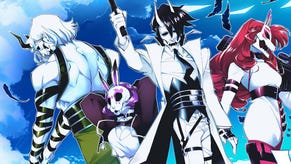Neon White is an anime speedrunner full of camp, cards, and colour
Heaven for speed freaks.
"It'll be a game for freaks," said Ben Esposito of Neon White in a gameplay trailer when it was announced for Nintendo Switch last July.
Really, it's a game for people who like fun, campy, melodrama alongside their speedrunning. In a video preview of the game, Esposito describes Neon White as a speedrunning first person shooter meets visual novel that's "nostalgic but not in a superficial way".
"We really wanted to make a game that felt cool and it really felt like the self-indulgent Y2K anime game of our dreams," he says.
Rather than subvert expectations and shy away from obvious cringeworthy tropes, Esposito and the team have leaned into them. Here instead is a game that plays like an anime, full of vibrant colours, outlandish characters, and a fanciful story of Heaven and Hell. It's even got anime voice actor Steve Blum (Cowboy Bebop) voicing the lead character.
That's the titular Neon White, an assassin plucked from Hell to compete in a death game to secure a place in Heaven. White is one of a number of Neons taking part, with the story unravelling in visual novel style sections between levels. It's certainly a step away from Esposito's previous game, Donut County.
Not much of the narrative was shown in this preview, but where that leans into familiar beats the gameplay certainly subverts expectations.
This is a first person shooter that plays more like a puzzle platformer that encourages replay. The goal of each level is to defeat all the enemies and reach the goal. Simple enough. Completing each level rewards experience in the form of Insight, which then reveals new paths and hidden items. To truly master the game is to reach the goal as quickly as possible - often in mere seconds.
To do that, you must creatively utilise the cards you collect along the way. Cards are your weapons and each has two forms: a firing mode and an alternative ability used by discarding the card. For instance, a pistol card can shoot enemies or offer a double jump when discarded; a submachine gun doubles as a downward stomp; a slow-firing rifle provides a mid-air dash.
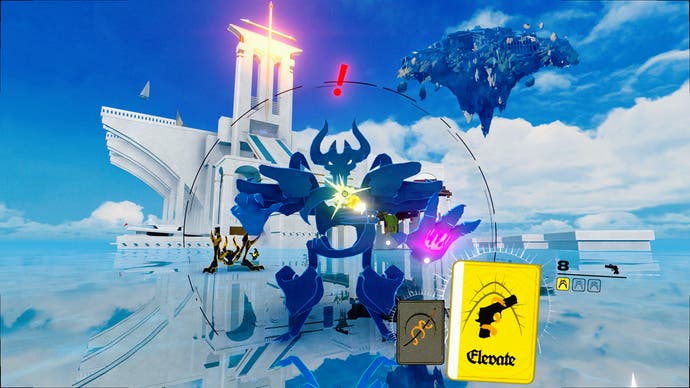
Levels are hand-crafted and act more like puzzle boxes, with Esposito describing gameplay as "a conversation with the designer". The action zips along rapidly (and at a promised 60fps - plus motion controls - on Switch, though this preview was on PC), with floaty gravity allowing time for decision-making and adding to the angelic feel.
There's no view of weapons or hands either, further subverting expectations of an FPS. Instead there are simply cards shown in the bottom right corner and your crosshairs in the centre of the screen. That's a purposeful point of difference, to show how these aren't your traditional weapons; instead you have limited resources in each level, with constraints forcing creativity. Plus, animating hands and weapons swiftly would take away from the pace of the game.
Demonic enemy designs also play into the game's speed and creativity. While some actively attack, others can be used for mobility as another piece of the platforming puzzle. Floating balloon demons, for instance, offer a platforming challenge, while petal enemies aimed at pushing you back can instead be used to speed off in a positive direction.
Sets of ten levels form a mission with its own story arc, between which you can interact with other characters on a world map depicting the various areas of Heaven: a park, a bar, a cathedral, and other places to hang out.
Though there are relationships in the game the player can pursue, Esposito is keen to point out this isn't a romance simulator. Following the track of each individual relationship is simply a way of allowing the player to unlock and understand White's connection to the colourful cast.
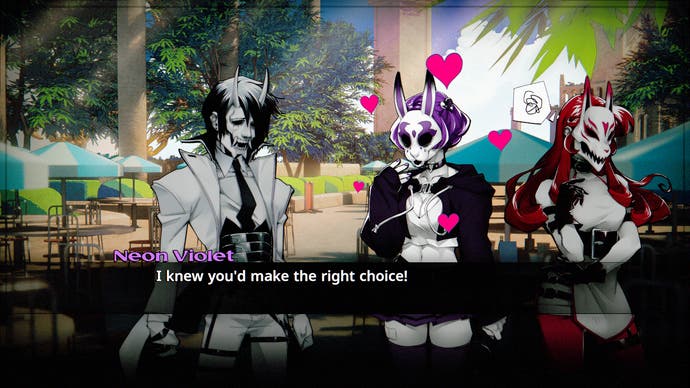
And these relationships are often adult (though not sexual) in nature, while the narrative themes often touch on serious topics. This might be a bright anime world, but its nostalgic tone is certainly aimed at adults. After all, there are clear religious undertones to its Heaven and Hell setup. Character design is also inspired by Suda51 - Killer7 is Esposito's favourite game.
Like Killer7, Neon White is a game with an excess of style, but there's depth here too, which the unlockable leaderboards will surely attest to. There's also potential in the integration of levels with the visual novel. Collecting hidden gifts advances relationships to unlock both memories and side quests with levels personalised to that character. That ensures there's plenty of content to speedrun through, even if it runs the risk of becoming repetitive.
Still, if the pulsing electronic soundtrack, knowingly cool designs, and eccentric vibe are aimed at freaks, sign me up.
Neon White is due out on PC and Nintendo Switch later this year.
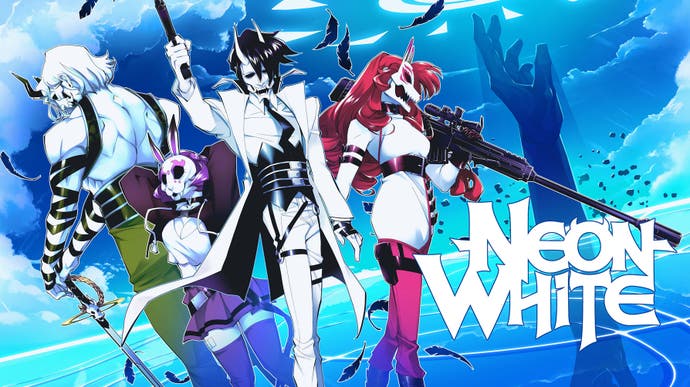


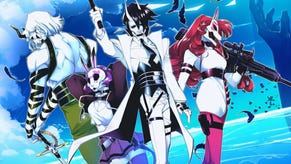

.jpg?width=291&height=164&fit=crop&quality=80&format=jpg&auto=webp)
